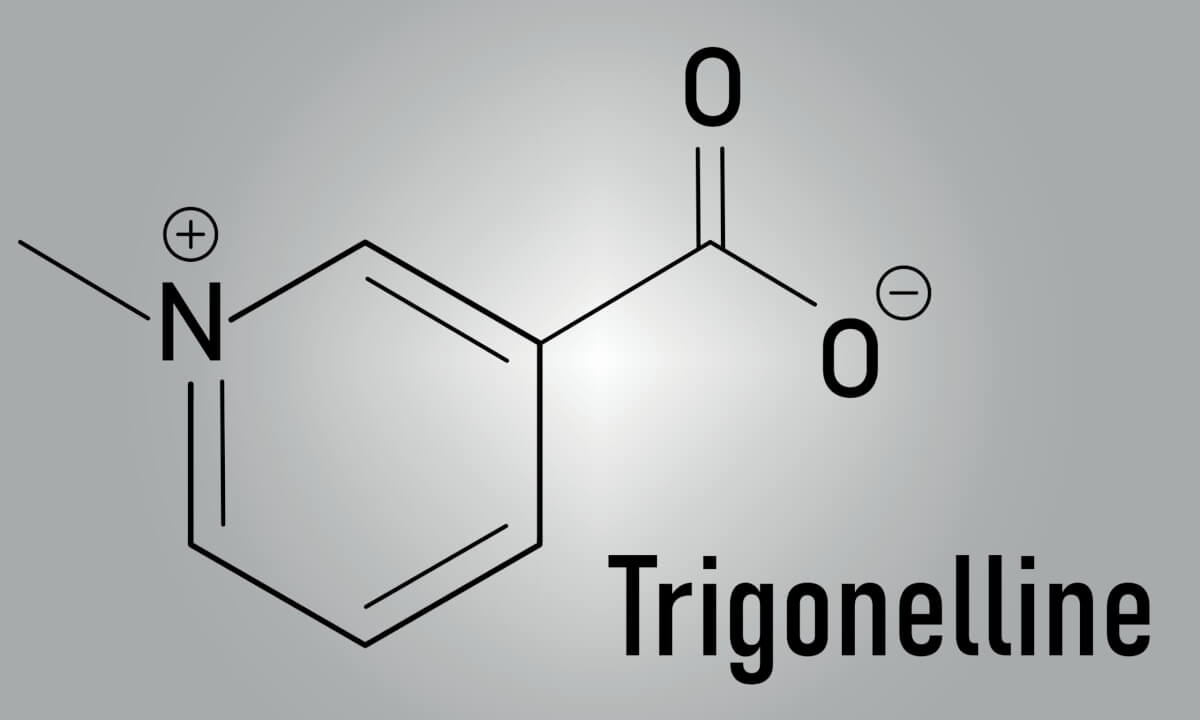
(Photo by Cast Of Thousands on Shutterstock)
SINGAPORE — As we get older, our muscles naturally start to decline. This process, known as sarcopenia, can lead to frailty, falls, and a loss of independence in our golden years. But what if there was a natural compound that could help slow down this process and keep our muscles healthy and strong as we age?
New research by scientists from the National University of Singapore, published in Nature Metabolism, identifies a promising candidate: trigonelline. Trigonelline is a compound found in many plant-based foods like coffee, fenugreek seeds, and garden peas. Research shows that levels of trigonelline in the blood were lower in older adults with weaker muscles and slower walking speeds.
Intrigued by this correlation, the researchers decided to dig deeper into whether trigonelline could actually directly impact muscle health. Through a series of experiments in human muscle cells, mice, and even tiny worms called C. elegans, they discovered that trigonelline acts as a precursor for NAD+, a critical coenzyme that declines with age.
💡What To Know About Age-Related Injuries:
- Roughly 1 in 4 adults over 65 years-old suffers a fall, according to the CDC.
- Over 3 million older adults receive emergency treatment for falls each year.
- More than 300,000 of these injuries are hip fractures needing hospitalization.
NAD+, or nicotinamide adenine dinucleotide, is essentially the currency of metabolism in our cells, enabling the fundamental chemical reactions that generate energy and keep us alive. Mitochondria, the powerhouses of the cell, rely on NAD+ to function properly. Muscle cells are packed with mitochondria to power movement. So, the age-related decline in NAD+ is thought to be a key driver of mitochondrial dysfunction and muscle deterioration over time.
“Our findings expand the current understanding of NAD+ metabolism with the discovery of trigonelline as a novel NAD+ precursor and increase the potential of establishing interventions with NAD+-producing vitamins for both healthy longevity and age-associated diseases applications,” says Vincenzo Sorrentino from the Healthy Longevity Translational Research Program at NUS Medicine, in a media release.

It's All About NAD+
The scientists found that trigonelline treatment boosted NAD+ levels and improved markers of mitochondrial function in aged muscle cells from both humans and mice. Remarkably, feeding trigonelline to elderly mice for 12 weeks increased their grip strength and protected them against muscle fatigue.
Even the little C. elegans worms got a boost from trigonelline – it extended their lifespan, improved the structural integrity of their muscle cells, and helped maintain their ability to wriggle around with age. The worms with a genetic tweak that eliminated their ability to process trigonelline into NAD+ didn't get these anti-aging perks, confirming that the NAD+ connection is key.
From a chemical perspective, trigonelline looks a lot like niacin (vitamin B3). But unlike niacin supplements, which are incorporated directly into NAD+, the researchers determined that trigonelline has to go through a few more metabolic steps first. Enzymes strip off trigonelline's extra methyl group (that's the “M” in its chemical name: “N-methylnicotinic acid”) to produce nicotinic acid. Nicotinic acid then gets ushered into the cell's NAD+ factory through a pathway called the Preiss–Handler pathway.
Interestingly, some tissues, like the liver, are really efficient at this trigonelline-to-NAD+ conversion, while others, like skeletal muscle, get a smaller NAD+ boost from trigonelline. The researchers think this might be why the aged mice didn't pack on more muscle mass with trigonelline, even though their muscle strength and endurance improved.

More Trigonelline Research Needed
So, is trigonelline a new miracle muscle supplement? Not quite yet – the researchers caution that sarcopenia is a complex disease, and nutrition alone likely can't completely reverse it. Trigonelline could be an important piece of the puzzle, but older adults will still need adequate protein, vitamin D, omega-3s, and exercise to fully combat muscle loss.
It's also not entirely clear yet how much of the trigonelline in foods like coffee translates to the benefits seen in the lab – the mice and worms in this study got pretty high doses. And the human data is still correlational. Randomized controlled trials are needed to prove that trigonelline supplements can slow or reverse muscle aging. In other words, don't start downing cup after cup of coffee thinking you'll be doing your body good.
Nonetheless, this study breaks exciting new ground by revealing that this humble plant compound, as a dietary NAD+ precursor, could be an ally in the fight against sarcopenia. If the preclinical promise of trigonelline holds up in human trials, it may one day be a key ingredient in the recipe for stronger muscles and healthier aging.
The project was funded by Nestlé Research, Nestlé Health Sciences and direct funding to the senior authors.
EdNews' Editor-in-Chief Steve Fink contributed to this report.











Does decaf have the same effect or is the compound broken down during the decaffeination process?
What a load of bullsh*t. I wonder what funded this “research”.
Folgers funded it
Or Big Coffee...
Singapore, unlike the United States, has a very disciplined population. I trust their research more than ours.
Come on, I like coffee but just don't call it a cup of Joe. It makes me quesy just to hear it verbalized.
JOY J OUT YESTERDAY
Give you coffee a JOLT J OUT - LEAVE TODAY !!!
If it has to be converted to niacin (nicotinic acid) first, wouldn't it be better just to take niacin?
Note that Nestle funded this. They are trying to jump on the NAD+ bandwagon to increase sales. How many gallons of coffee would you have to consume every day? Go with the NAD+ precursor supplements instead, like niacinamide. You're welcome.